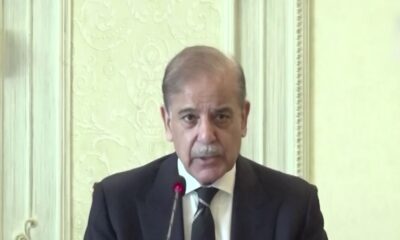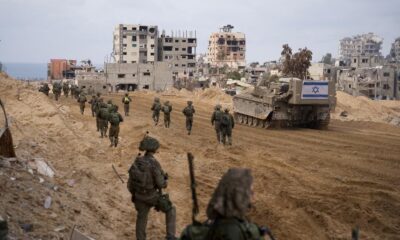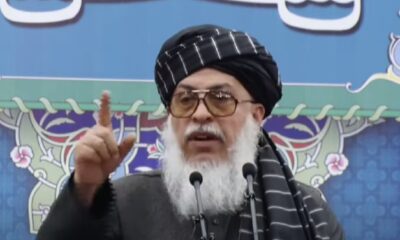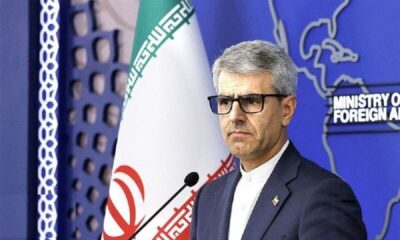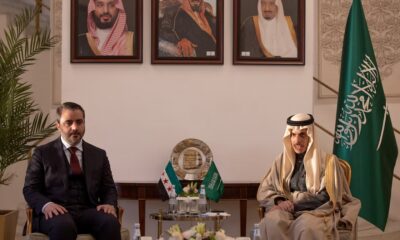World
Jimmy Carter, former US president and Nobel Peace Prize recipient, dead at 100
Carter won the Nobel Peace Prize in 2002 for his efforts to promote human rights and resolve conflicts around the world, from Ethiopia and Eritrea to Bosnia and Haiti.
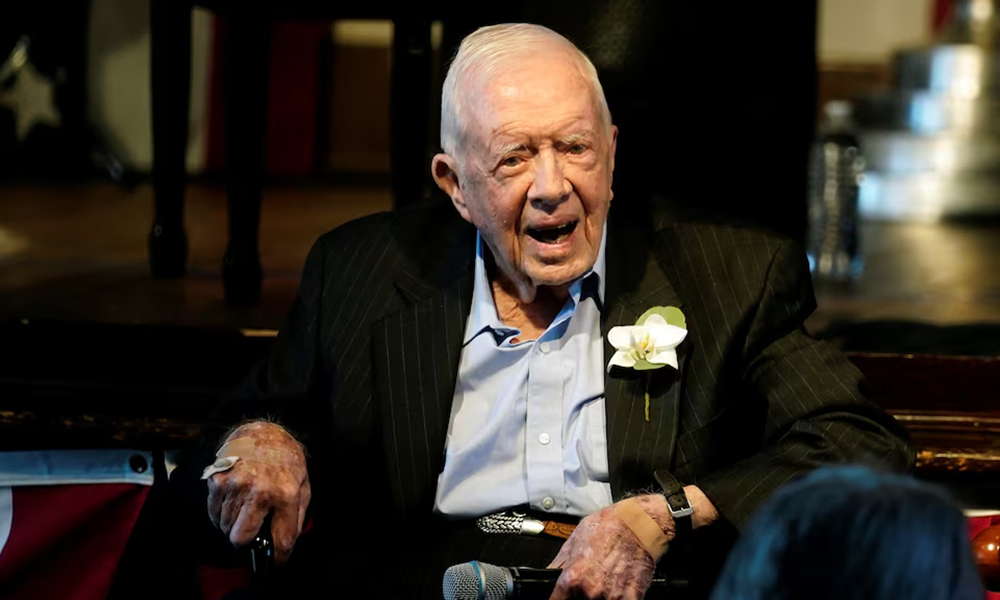
Jimmy Carter, the earnest Georgia peanut farmer who as U.S. president struggled with a bad economy and the Iran hostage crisis but brokered peace between Israel and Egypt and later received the Nobel Peace Prize for his humanitarian work, died at his home in Plains, Georgia, on Sunday. He was 100, Reuters reported.
Carter, a Democrat, became president in January 1977 after defeating incumbent Republican President Gerald Ford in the 1976 election. His one-term presidency was marked by the highs of the 1978 Camp David accords between Israel and Egypt, bringing some stability to the Middle East.
But it was also dogged by an economic recession, persistent unpopularity and the Iran hostage crisis that consumed his final 444 days in office. Carter ran for re-election in 1980 but was swept from office in a landslide as voters embraced Republican challenger Ronald Reagan, the former actor and California governor.
Carter lived longer than any U.S. president and, after leaving the White House, earned a reputation as a committed humanitarian. He was widely seen as a better former president than he was a president - a status he readily acknowledged, read the report.
World leaders and former U.S. presidents paid tribute to a man they praised as compassionate, humble and committed to peace in the Middle East.
"His significant role in achieving the peace agreement between Egypt and Israel will remain etched in the annals of history," said Egyptian President Abdel Fattah al-Sisi in a post on X.
The Carter Center said there will be public observances in Atlanta and Washington. These events will be followed by a private interment in Plains, it said.
Final arrangements for the former president's state funeral are still pending, according to the center.
In recent years, Carter had experienced several health issues including melanoma that spread to his liver and brain. Carter decided to receive hospice care in February 2023 instead of undergoing additional medical intervention. His wife, Rosalynn Carter, died on Nov. 19, 2023, at age 96. He looked frail when he attended her memorial service and funeral in a wheelchair.
Carter left office profoundly unpopular but worked energetically for decades on humanitarian causes. He was awarded the Nobel Peace Prize in 2002 in recognition of his "untiring effort to find peaceful solutions to international conflicts, to advance democracy and human rights, and to promote economic and social development."
Carter had been a centrist as governor of Georgia with populist tendencies when he moved into the White House as the 39th U.S. president. He was a Washington outsider at a time when America was still reeling from the Watergate scandal that led Republican Richard Nixon to resign as president in 1974 and elevated Ford from vice president.
"I'm Jimmy Carter and I'm running for president. I will never lie to you," Carter promised with an ear-to-ear smile.
Asked to assess his presidency, Carter said in a 1991 documentary: "The biggest failure we had was a political failure. I never was able to convince the American people that I was a forceful and strong leader."
Despite his difficulties in office, Carter had few rivals for accomplishments as a former president. He gained global acclaim as a tireless human rights advocate, a voice for the disenfranchised and a leader in the fight against hunger and poverty, winning the respect that eluded him in the White House.
Carter won the Nobel Peace Prize in 2002 for his efforts to promote human rights and resolve conflicts around the world, from Ethiopia and Eritrea to Bosnia and Haiti. His Carter Center in Atlanta sent international election-monitoring delegations to polls around the world.
A Southern Baptist Sunday school teacher since his teens, Carter brought a strong sense of morality to the presidency, speaking openly about his religious faith. He also sought to take some pomp out of an increasingly imperial presidency - walking, rather than riding in a limousine, in his 1977 inauguration parade.
The Middle East was the focus of Carter's foreign policy. The 1979 Egypt-Israel peace treaty, based on the 1978 Camp David accords, ended a state of war between the two neighbors, Reuters reported.
Carter brought Egyptian President Anwar Sadat and Israeli Prime Minister Menachem Begin to the Camp David presidential retreat in Maryland for talks. Later, as the accords seemed to be unraveling, Carter saved the day by flying to Cairo and Jerusalem for personal shuttle diplomacy.
The treaty provided for Israeli withdrawal from Egypt's Sinai Peninsula and establishment of diplomatic relations. Begin and Sadat each won a Nobel Peace Prize in 1978.
By the 1980 election, the overriding issues were double-digit inflation, interest rates that exceeded 20% and soaring gas prices, as well as the Iran hostage crisis that brought humiliation to America. These issues marred Carter's presidency and undermined his chances of winning a second term.
On Nov. 4, 1979, revolutionaries devoted to Iran's Ayatollah Ruhollah Khomeini had stormed the U.S. Embassy in Tehran, seized the Americans present and demanded the return of the ousted shah Mohammad Reza Pahlavi, who was backed by the United States and was being treated in a U.S. hospital.
The American public initially rallied behind Carter. But his support faded in April 1980 when a commando raid failed to rescue the hostages, with eight U.S. soldiers killed in an aircraft accident in the Iranian desert.
Carter's final ignominy was that Iran held the 52 hostages until minutes after Reagan took his oath of office on Jan. 20, 1981, to replace Carter, then released the planes carrying them to freedom.
In another crisis, Carter protested the former Soviet Union's 1979 invasion of Afghanistan by boycotting the 1980 Olympics in Moscow. He also asked the U.S. Senate to defer consideration of a major nuclear arms accord with Moscow.
Unswayed, the Soviets remained in Afghanistan for a decade.
Carter won narrow Senate approval in 1978 of a treaty to transfer the Panama Canal to the control of Panama despite critics who argued the waterway was vital to American security. He also completed negotiations on full U.S. ties with China.
Carter created two new U.S. Cabinet departments - education and energy. Amid high gas prices, he said America's "energy crisis" was "the moral equivalent of war" and urged the country to embrace conservation. "Ours is the most wasteful nation on earth," he told Americans in 1977.
In 1979, Carter delivered what became known as his "malaise" speech to the nation, although he never used that word.
"After listening to the American people I have been reminded again that all the legislation in the world can't fix what's wrong with America," he said in his televised address.
"The threat is nearly invisible in ordinary ways. It is a crisis of confidence. It is a crisis that strikes at the very heart and soul and spirit of our national will. The erosion of our confidence in the future is threatening to destroy the social and the political fabric of America."
As president, the strait-laced Carter was embarrassed by the behavior of his hard-drinking younger brother, Billy Carter, who had boasted: "I got a red neck, white socks, and Blue Ribbon beer."
Jimmy Carter withstood a challenge from Massachusetts Senator Edward Kennedy for the 1980 Democratic presidential nomination but was politically diminished heading into his general election battle against a vigorous Republican adversary.
Reagan, the conservative who projected an image of strength, kept Carter off balance during their debates before the November 1980 election.
Reagan dismissively told Carter, "There you go again," when the Republican challenger felt the president had misrepresented Reagan's views during one debate.
Carter lost the 1980 election to Reagan, who won 44 of the 50 states and amassed an Electoral College landslide.
James Earl Carter Jr. was born on Oct. 1, 1924, in Plains, Georgia, one of four children of a farmer and shopkeeper. He graduated from the U.S. Naval Academy in 1946, served in the nuclear submarine program and left to manage the family peanut farming business.
He married his wife, Rosalynn, in 1946, a union he called "the most important thing in my life." They had three sons and a daughter.
Carter became a millionaire, a Georgia state legislator and Georgia's governor from 1971 to 1975. He mounted an underdog bid for the 1976 Democratic presidential nomination, and out-hustled his rivals for the right to face Ford in the general election, Reuters reported.
With Walter Mondale as his vice presidential running mate, Carter was given a boost by a major Ford gaffe during one of their debates. Ford said that "there is no Soviet domination of Eastern Europe and there never will be under a Ford administration," despite decades of just such domination.
Carter edged Ford in the election, even though Ford actually won more states - 27 to Carter's 23.
Not all of Carter's post-presidential work was appreciated. Former President George W. Bush and his father, former President George H.W. Bush, both Republicans, were said to have been displeased by Carter's freelance diplomacy in Iraq and elsewhere.
In 2004, Carter called the Iraq war launched in 2003 by the younger Bush one of the most "gross and damaging mistakes our nation ever made." He called George W. Bush's administration "the worst in history" and said Vice President Dick Cheney was "a disaster for our country."
In 2019, Carter questioned Republican Donald Trump's legitimacy as president, saying "he was put into office because the Russians interfered on his behalf." Trump responded by calling Carter "a terrible president."
Carter also made trips to communist North Korea. A 1994 visit defused a nuclear crisis, as President Kim Il Sung agreed to freeze his nuclear program in exchange for resumed dialogue with the United States. That led to a deal in which North Korea, in return for aid, promised not to restart its nuclear reactor or reprocess the plant's spent fuel.
But Carter irked Democratic President Bill Clinton's administration by announcing the deal with North Korea's leader without first checking with Washington.
In 2010, Carter won the release of an American sentenced to eight years hard labor for illegally entering North Korea.
Carter wrote more than two dozen books, ranging from a presidential memoir to a children's book and poetry, as well as works about religious faith and diplomacy. His book "Faith: A Journey for All," was published in 2018.
World
US plans $8 billion arms sale to Israel, US official says

The administration of President Joe Biden has notified Congress of a proposed $8 billion arms sale to Israel, a U.S. official said on Friday, with Washington maintaining support for its ally whose war in Gaza has killed tens of thousands.
The deal would need approval from the House of Representatives and Senate committees and includes munitions for fighter jets and attack helicopters as well as artillery shells, Axios reported earlier. The package also includes small-diameter bombs and warheads, according to Axios, Reuters reported.
The State Department did not respond to a request for comment.
Protesters have for months demanded an arms embargo against Israel, but U.S. policy has largely remained unchanged. In August, the United States approved the sale of $20 billion in fighter jets and other military equipment to Israel.
The Biden administration says it is helping its ally defend against Iran-backed militant groups like Hamas in Gaza, Hezbollah in Lebanon and the Houthis in Yemen.
Facing international criticism, Washington has stood by Israel during its assault on Gaza that has displaced nearly all of Gaza's 2.3 million population, caused a hunger crisis and led to genocide accusations that Israel denies.
The Gaza health ministry puts the death toll at over 45,000 people, with many additional feared buried under rubble.
Diplomatic efforts have so far failed to end the 15-month-old Israeli war in Gaza that was triggered after an Oct. 7, 2023 attack by Palestinian Hamas militants that killed 1,200 and in which about 250 were taken hostage, according to Israeli tallies.
Washington, Israel's biggest ally and weapons supplier, has also previously vetoed U.N. Security Council resolutions on a ceasefire in Gaza.
Democrat Biden is due to leave office on Jan. 20, when Republican President-elect Donald Trump will succeed him. Both are strong backers of Israel.
World
South Korean presidential guards prevent arrest of impeached Yoon after tense stand-off

South Korea's presidential guards and military troops prevented authorities from arresting impeached President Yoon Suk Yeol on Friday in a tense six-hour stand-off inside Yoon's compound in the heart of Seoul.
Yoon is under criminal investigation for insurrection over his Dec. 3 martial law bid that stunned South Korea and led to the first arrest warrant to be issued for a sitting president.
"It was judged that it was virtually impossible to execute the arrest warrant due to the ongoing standoff," the Corruption Investigation Office for High-ranking Officials (CIO) said in a statement, Reuters reported.
CIO officials and police evaded hundreds of Yoon supporters who gathered in pre-dawn hours near his residence on Friday, vowing to block the arrest "with our lives".
Officials from the CIO, which is leading a joint team of investigators, arrived at the gates of the presidential compound shortly after 7 a.m. (2200 GMT Thursday) and entered on foot.
Once inside the compound, the CIO and police were outnumbered by cordons of Presidential Security Service (PSS) personnel, as well as troops seconded to presidential security, a CIO official told reporters.
More than 200 PSS agents and soldiers blocked the CIO officers and police, he added. While there were altercations and PSS agents appeared to be carrying firearms, no weapons were drawn, he said.
Yoon, who has been isolated since he was impeached and suspended from power on Dec. 14, was not seen during the standoff, he said.
South Korea's defence ministry said the troops were under the control of the PSS.
The CIO called off the effort to arrest Yoon around 1:30 p.m. due to concerns over the safety of its personnel, and said it "deeply regretted" Yoon's non-compliance.
The CIO said it would consider its next steps. The police, who are part of the joint investigation team, have designated the PSS chief and the deputy as suspects in a criminal case for obstruction of official duty and issued summons for them to appear for questioning on Saturday, Yonhap news reported.
Insurrection is one of the few criminal charges from which a South Korean president does not have immunity.
Yoon's arrest warrant, approved by a court on Tuesday after he ignored multiple summons to appear for questioning, is viable until Jan. 6.
In a statement after the arrest effort was suspended, Yoon's legal team said the CIO had no authority to investigate insurrection and it was regrettable that it had tried to execute an illegal warrant in a sensitive security area.
The statement warned police against supporting the arrest effort. The presidential office filed a criminal complaint against three broadcasters and YouTube channel owners for unauthorized filming of the presidential residence, which it said was "a secured facility directly linked to national security."
The current warrant gives investigators only 48 hours to hold Yoon after he is arrested. Investigators must then decide whether to request a detention warrant or release him.
Kim Seon-taek, a Korea University law professor, said targeting the PSS leadership may allow the investigators to sap the service's ability to put up resistance so they can try again to execute the warrant, which is "a rough way" to proceed.
A better way, he said, would be for acting President Choi Sang-mok to exercise his power to order the PSS to cooperate. Later on Friday, the CIO said it would ask Choi to give that order.
SURPRISE MARTIAL LAW
Yoon sent shockwaves through Asia's fourth-largest economy and one of the region's most vibrant democracies with his late-night announcement that he was imposing martial law to overcome political deadlock and root out "anti-state forces".
Within hours, however, 190 lawmakers had defied the cordons of troops and police to vote against Yoon's order. About six hours after his initial decree, Yoon rescinded it.
He later issued a defiant defence of his decision, saying domestic political opponents are sympathetic to North Korea and citing uncorroborated claims of election tampering.
Two South Korean military officials, including the martial law commander during the short-lived declaration, have been indicted on insurrection charges, Yonhap reported on Friday.
Kim Yong-hyun, who resigned as Yoon's defence minister after playing a major role in the martial law decree, has been detained and was indicted last week on charges of insurrection and abuse of power.
Separate from the criminal investigation, Yoon's impeachment case is before the Constitutional Court to decide whether to reinstate or permanently remove him. A second hearing in that case was held on Friday and the court set the first oral arguments for Jan. 14.
Bae Jin-han, one of the lawyers for Yoon, told reporters Yoon may not appear for the first arguments but will likely do so at a future hearing to argue his position.
North Korea's state media published a detailed report on the political turmoil in the South, including the arrest warrant issued for Yoon, who it said "stubbornly refuses to be investigated, totally denying his crimes with sheer lies."
North Korea has been harshly critical of Yoon, citing his hardline policy against Pyongyang as grounds in declaring the South a "primary foe" and announcing it had abandoned unification as a national goal.
World
US vet formerly deployed in Afghanistan rams truck into New Orleans crowd, killing 15

A U.S. Army veteran flying an ISIS flag from his truck swerved around makeshift barriers and plowed into New Orleans' crowded French Quarter on New Year's Day, killing 15 people in an attack officials said may have been carried out with the help of others.
The suspect, identified as Shamsud-Din Jabbar, 42, a U.S. citizen from Texas who once served in Afghanistan, was killed in a shootout with police after ramming the crowd, Reuters reported.
The attack injured about 30 other people, including two police officers wounded by gunfire from the suspect. It took place around 3:15 a.m. (0915 GMT) near the intersection of Canal and Bourbon Streets, an historic tourist destination known for its music and bars where crowds were celebrating the New Year.
Police and political leaders vowed to capture any accomplices.
Police found weapons and a potential explosive device in the vehicle, while two potential explosive devices were found in the French Quarter and rendered safe, the FBI said.
With the perceived danger ongoing, officials postponed the Sugar Bowl, a classic college football game played in New Orleans each year on New Year's Day. The game between Notre Dame and Georgia was put off until Thursday afternoon as police swept parts of the city looking for possible explosive devices and converged on neighborhoods in search of clues.
The city will also host the NFL Super Bowl on Feb. 9.
An ISIS flag was attached to a staff protruding from the trailer hitch of the rented vehicle, prompting an investigation into possible links to terrorist organizations, the Federal Bureau of Investigation said.
"We do not believe that Jabbar was solely responsible. We are aggressively running down every lead, including those of his known associates," FBI Assistant Special Agent in Charge Alethea Duncan told reporters, adding that investigators were looking into a "range of suspects."
The victims included the mother of a 4-year-old who had just moved into a new apartment after getting a promotion at work, a New York financial employee and accomplished student athlete who was visiting home for the holidays, and an 18-year-old aspiring nurse from Mississippi.
BIDEN CONDEMNS ATTACK
U.S. President Joe Biden condemned what he called a "despicable" act and said investigators were looking into whether there might be a link to a Tesla truck fire outside a Trump hotel in Las Vegas. So far, there was no evidence linking the two events, Biden said.
"The FBI also reported to me that mere hours before the attack, he posted videos on social media indicating that he's inspired by ISIS, expressing the desire to kill," Biden said of the New Orleans suspect.
CNN, citing officials briefed on the investigation, said the suspect recorded videos in which he mentioned dreams about joining ISIS and contemplated killing his family after a divorce.
ISIS - also called Islamic State or ISIL - is a Muslim militant group that once imposed a reign of terror over millions of people in Iraq and Syria until it collapsed following a sustained military campaign by a U.S.-led coalition.
Even as it has been weakened in the field, ISIS has continued to recruit sympathizers online, experts say.
Public records showed Jabbar worked in real estate in Houston. In a promotional video posted four years ago, Jabbar described himself as born and reared in Beaumont, a city about 80 miles (130 km) east of Houston, and said he spent 10 years in the U.S. military as a human resources and IT specialist.
Jabbar was in the regular Army from March 2007 until January 2015 and then in the Army Reserve from January 2015 until July 2020, an Army spokesperson said. He deployed to Afghanistan from February 2009 to January 2010 and held the rank of staff sergeant at the end of service.
'SCREAMING AND DEBRIS'
Mike and Kimberly Strickland of Mobile, Alabama, said they were in New Orleans for a bluegrass concert and heading back to their hotel just 20 yards (meters) from where the truck hit some pedestrians.
"There were people everywhere," Kimberly Strickland said in an interview. "You just heard this squeal and the rev of the engine and this huge loud impact and then the people screaming and debris - just metal - the sound of crunching metal and bodies."
About 400 officers were on duty in the French Quarter at the time of the incident, including a number who had established a makeshift barrier to prevent anyone from driving into the pedestrian zone, police said.
In response to vehicle attacks on pedestrian malls around the world, New Orleans was in the process of removing and replacing the steel barriers known as bollards that restrict vehicle traffic in the Bourbon Street area.
Construction was due to be completed in time for the Super Bowl. As a temporary measure, police vehicles and officers attempted to provide a barrier, Kirkpatrick said.
"We did indeed have a plan, but the terrorist defeated it," Kirkpatrick said.
-
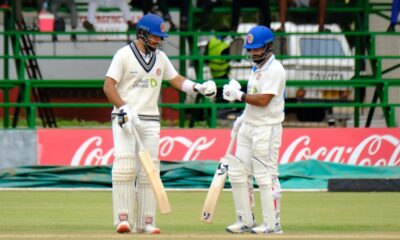
 Sport5 days ago
Sport5 days agoRecord day for Afghanistan but test ends in a draw
-
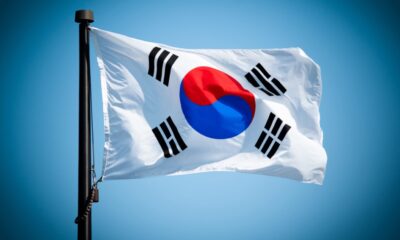
 Latest News4 days ago
Latest News4 days agoSouth Korea pledges $5 million to support vulnerable families in Afghanistan
-

 World4 days ago
World4 days agoUS announces $5.9 billion in military and budget aid to Ukraine
-

 Science & Technology4 days ago
Science & Technology4 days agoUS Treasury says Chinese hackers stole documents in ‘major incident’
-

 Latest News2 days ago
Latest News2 days agoMinistry: $1 billion invested in Afghanistan’s poultry production sector
-
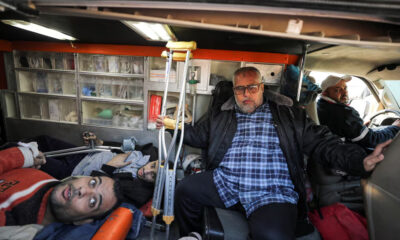
 Regional3 days ago
Regional3 days agoU.N. body accuses Israel of destroying Gaza healthcare
-
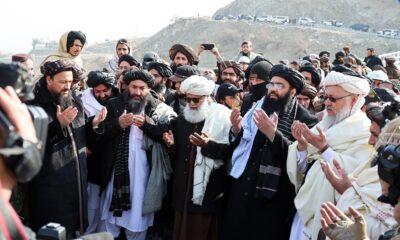
 Latest News4 days ago
Latest News4 days agoShah wa Arus dam inaugurated in Kabul
-
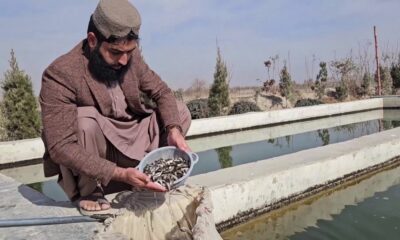
 Latest News2 days ago
Latest News2 days agoDeclining water levels affect 50 percent of fish farms in Kandahar


